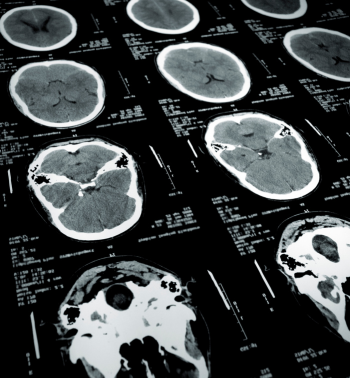25 November 2024
Dr Paul Shotbolt from the Institute of Psychiatry, Psychology and Neuroscience (IoPPN) updates on the launch of Maudsley Neurotechnology (MNT), a combined South London and Maudsley NHS Foundation Trust (NHS FT) and King's College London venture, and how neurotechnology is transforming delivery of mental health care.
MNT is a clinical and academic centre for evaluating and delivering evidence-based neurotechnology treatments for psychiatric and neuropsychiatric disorders. Many patients with these disorders only partially respond to any form of pharmacological treatment. Neurotechnological treatments, including physical means of brain stimulation, known as neuromodulation, represent an alternative non-pharmacological treatment strategy through direct control of the aberrant neural activity underpinning the diseases or their symptomatic manifestation.
MNT is positioned across the IoPPN, a world leader in high-quality research in mental health, and the South London and Maudsley NHS FT, the leading mental health NHS Foundation Trust. MNT works closely with other national centres at SLaM, including the National Affective Disorders Service (NADS) and the Maudsley Advanced Treatment Service (MATS).
MNT aims to:
- deliver neurotechnology treatments to patients;
- advance neurotechnology through research, development and evaluation;
- provide education and training in neurotechnology and facilitate knowledge sharing.
As part of the first objective, MNT has established a repetitive transcranial magnetic stimulation (rTMS) service at the Maudsley Hospital. rTMS is a proven treatment for depression, having been approved for this indication by the National Institute of Clinical Excellence (NICE). We will also offer TMS for obsessive-compulsive disorder.
On the research side, MNT is driving forward multiple research initiatives, including the following studies:
- TIDAL study – Temporal Interference for Depression targeting ACC/Limbic circuitry. Temporal Interference (TI) stimulation is a novel, non-invasive neuromodulation technique that uses high-frequency electric fields to selectively modulate deep brain structures. TI offers an innovative method for targeting amygdala and anterior cingulate cortex (ACC) in the treatment of Major Depressive Disorder (MDD).
- CRISP study: Clinical Response of Impulsive behaviours to Deep Brain Stimulation in Parkinson’s disease. We are gathering patient data on changes in impulsivity pre- and post – DBS surgery from seven UK DBS centres. This study was funded by Parkinson’s UK.
- Motor imagery rehearsal using an EEG brain-computer interface in motor functional neurological disorder (FND): Exploring changes in sense of agency and patient acceptability. FND is a common cause of significant disabling symptoms such as limb weakness, tremor and stiffness. We will explore the potential for BCI rehabilitation to be used in FND.
- Identification of biomarkers for personalised neuromodulation in neuropsychiatric disorders. Personalised neuromodulation is a promising novel strategy which consists in tailoring brain stimulation to each patient’s unique symptoms and neural characteristics. We aim to identify electrophysiological symptom markers and create personalised treatment strategies for a diverse range of neuropsychiatric conditions.
- MNT has recently been awarded a NIHR Capital Investment Call grant of £340,000 to purchase rTMS, recoveriX BCI , low-intensity focussed ultrasound and voltammetry equipment.
MNT is committed to education and training. We are organising an international meeting showcasing the latest advances in neurotechnology in mental health in May 2025, supported by the KHP Neurosciences programme team. We offer training in delivery of rTMS for South London and Maudsley NHS FT trainees and consultants.
MNT has numerous ongoing academic collaborations; locally we have links with the King's College London School of Biomedical Engineering (Prof Anne Vanhoestenberghe and Dr Ines Violante).
We are working with Birmingham University (Dr Wessel Woldman) to identify machine learning biomarkers of different seizure types. We are an external partner on a cross-disciplinary project to develop closed-loop treatments for auditory hallucinations in schizophrenia with the University of Lille (Prof Renaud Jardri).
We have also formed collaborations with industry, including Brainsway (rTMS), Neurodome (TI), g.tec (recoveriX BCI) and Clouds of Care (EEG biomarkers in CNS trials).
We also provide expertise to The Centre for Neurotechnology and Law and Cerebralink Neurotech Consultancy.
Lastly, we are fully committed to development and delivery of neurotechnology interventions to advance mental health care in a way that is personalised, humane and empathic. We believe that personalised neurotechnology treatments will allow renewed focus on each individual patient’s needs, and by doing so will enhance and humanise interactions between patients and their clinicians.
Find out more about the work of KHP Neurosciences.





